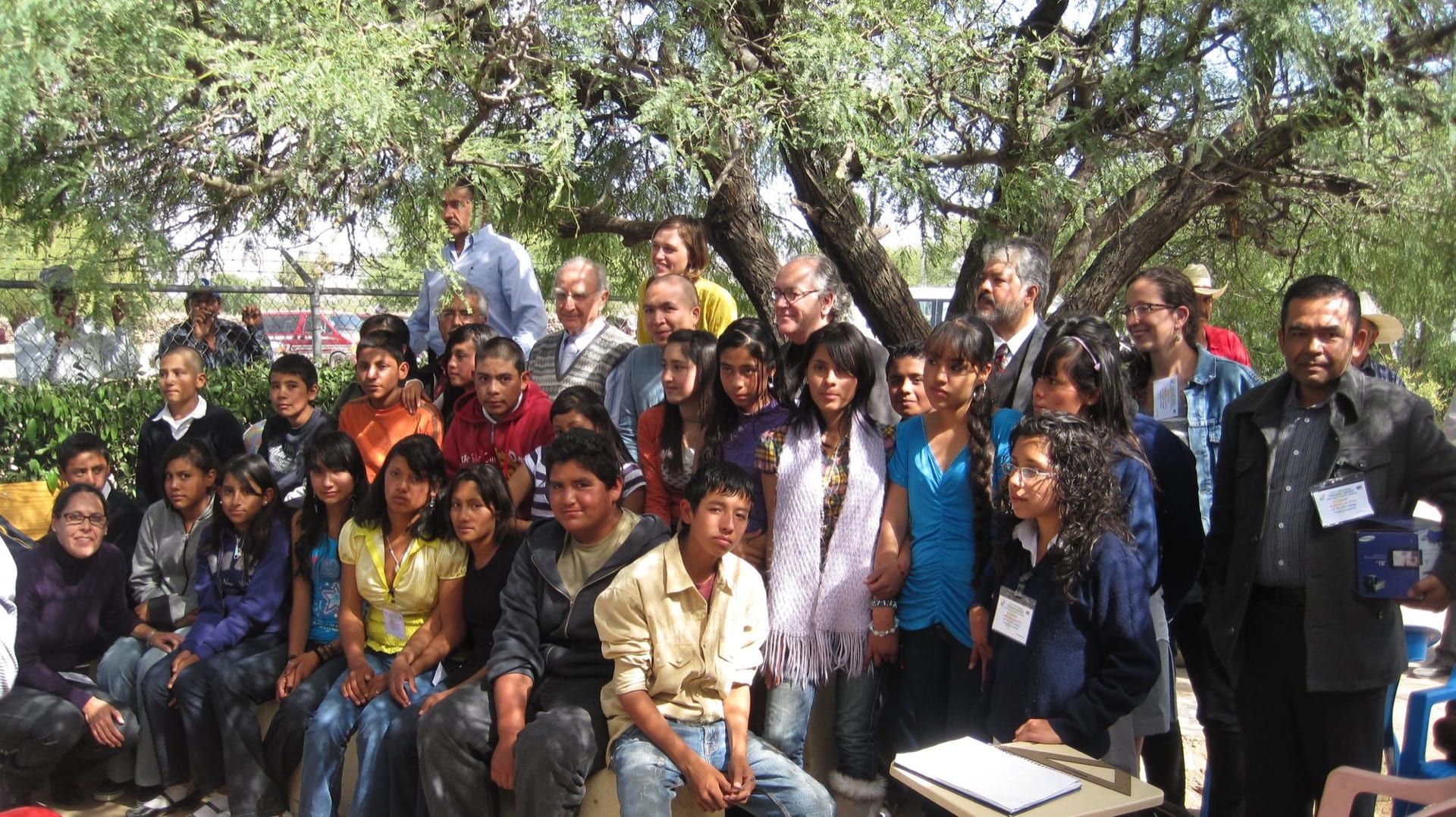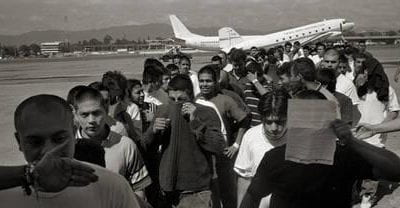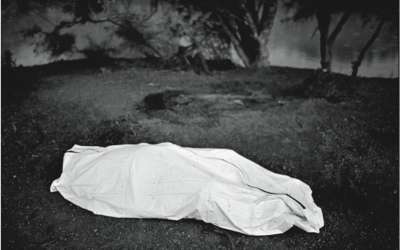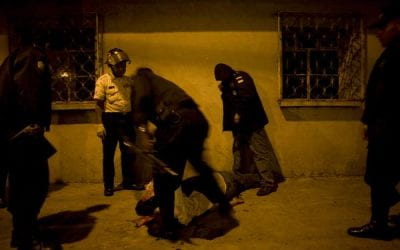Making a Difference: Grassroots Educational Change in Mexican Public Schools

Researchers, administrators, and teachers visiting a LCP school in Zacatecas. Photo by Annette Santos
Middle-school teacher Miguel Hernández, from the state of Querétaro in Mexico, is learning math. Surprisingly, his teacher is Blanca de la Cruz, a ninth-grade student from a small rural community in the state of Zacatecas, also in central Mexico. Hernández and other visiting educators from Querétaro are part of the Education Ministry’s nationwide strategy to transform instructional practice in 9,000 public schools across the country.
Adults like Hernández are not only surprised to encounter middle-school students as their tutors, but also amazed by the level of confidence their young tutors demonstrate. Through their work, students like de la Cruz gain experience in learning independently as they guide others to solve math problems, interpret texts or translate English writings. Students like de la Cruz can now be counted in the thousands. Hundreds of adults like Hernández—teachers, school supervisors, educational officials, researchers, and organized members of the civil society—have been involved in similar experiences. Each has visited schools involved in an initiative called Integral Strategy for the Improvement of Educational Achievement (EIMLE).
EIMLE’s origins can be traced back to the work that Gabriel Cámara (Ed.D.’72, HGSE) and his colleagues in Convivencia Educativa, A.C. (CEAC, now Redes de Tutoría, S.C.) have been promoting for several years. EIMLE seeks to radically transform teaching and learning in thousands of public middle schools through the creation of social networks whereby a new pedagogical practice is showcased, learned and disseminated. In 2004, CEAC launched the Learning Community Project (LCP), a small-scale educational initiative that aimed at transforming instructional practice in a handful of public middle schools in historically marginalized communities (small, far-off, scattered communities with fewer than 2,500 inhabitants). Volunteer teachers from eight schools in two states received the support of CEAC coaches. One week of every month, coaches worked with teachers to improve their mastery of academic content and develop pedagogical skills to transform instructional practice in their classrooms.
Between 2004 and 2008, the core practice promoted by LCP expanded to about 60 schools through outreach and networking. The project was then adopted as a pilot by the Mexican Ministry of Basic Education and eventually expanded to about 300 schools. Recently, EIMLE adopted LCP’s model with the intention of expanding its core practice to 9,000 schools across Mexico.
The Learning Community Project members believe that powerful learning occurs when the learner’s interests are matched with the capacity of the teacher. In practice, this belief takes the form of a basic agreement. Teachers present students with a list of topics that they have previously studied in a network of tutors. An LCP teacher will offer her students only the topics and themes she has mastered well, and each student will choose among those topics the one he is most interested in. The students then begin individual lines of inquiry and, with the support of the teacher/tutor, build on previous knowledge through thoughtful questioning. Once a student masters a topic, she prepares a public demonstration to present what she has learned and her learning process to her peers. The student is then expected to become a tutor to other students (and even adults) interested in learning the topic she has mastered. This way, students learn both the content they study and the instructional practice as tutors. The knowledge generated here becomes the common property of all the parties involved and is made available to tutors and students in other schools.
I have been involved in LCP in different capacities for the past 11 years, first as a teacher coach and a leader of CEAC, then as a consultant to the Mexican Ministry of Education, and currently as a doctoral student. I seek to explore how and under what conditions actors on the margins of the public educational system (teachers, local leaders and a small NGO) are able to catalyze and expand educational change across the country. DRCLAS support in the form of Summer Internship Grants in the past years and, more recently, through a Summer Research Grant has allowed me to travel to Mexico to continue learning about and supporting the development of LCP.
LCP’s simple yet profoundly countercultural practice is currently being showcased, learned, refined and expanded throughout Mexico. The process is fostered by the creation of social networks, such as the one that connected Miguel and other teachers from Querétaro with LCP schools in Zacatecas. We hope you can visit us too!
Spring 2012, Volume XI, Number 3
Santiago Rincón Gallardo is a doctoral candidate at the Harvard Graduate School of Education and a visiting scholar at the Ontario Institute for Studies in Education.
For more information about EIMLE visit http://logroeducativo.wordpress.com, or contact santiago_rincon_gallardo@mail.harvard.edu)
Related Articles
Transmigration in Mexico
English + Español
En abril del 2010 una delegación oficial de El Salvador encabezada por Francis Hato Hasbún, el Secretario de Asuntos Estratégicos del gobierno del Presidente Mauricio Funes, visitó México…
Organized Crime as Human Rights Issue
English + Español
It was a horrifying scene— 72 people murdered all at once. One survivor bore witness to the massacre. The dead were migrants, mostly Central Americans; 58 men and 14 women trying to…
First Take: Organized Crime in Latin America
English + Español
Dealing with transnational organized crime is now an official part of U.S. security strategy.
A strategy document, issued by the White House in July 2011, speaks of organized crime groups…




